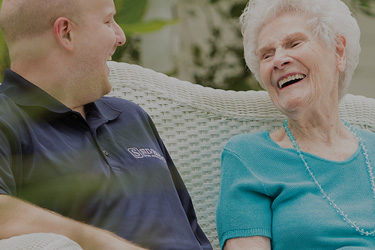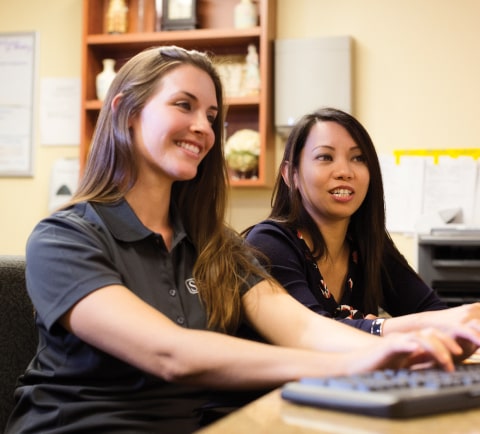(March 18, 2024) – Every day, colleagues and industry peers serving residents in senior living communities face challenges innate to the work we have all dedicated ourselves to — in the best of times and most certainly in the worst. It is in these times of uncertainty, however, that opportunity is ripe for leaders to build resilience throughout their teams and organizations by prioritizing and investing in culture.
As our country observes the fourth anniversary of its COVID-19 onset, I reflect on the strength I witnessed from my team, who endured the everyday uncertainties of the early days of the pandemic. They navigated through it all by never losing sight of always keeping the priority on residents while staying true to the principles of our core operating philosophy of love being greater than fear.
This philosophy again was put to the test when we found ourselves reliving the trauma as Silverado was faced with multiple felony charges from the Los Angeles County District Attorney’s Office related to an early COVID-19 outbreak. All charges against Silverado and leadership were fully dismissed early in the process, but the reality is that the job of being a caregiver is immensely challenging, with uncertainty peeking behind every door.
As you think about how to ensure that your organization is prepared to meet the unexpected, I wanted to share what we learned and the steps you, as leaders, can take to help ensure that your organization is ready to navigate the uncertainty as you continue living out your mission and caring for those entrusted in your care.
- Embolden teams: As part of my leadership philosophy, I empower our team members to make the decision to lead with love. Love is the opposite of fear and always will be the greater of the two. When our team members focus on serving our residents’ best interests first, they always will end up in the right.
- Compassion is nonnegotiable: A shared commitment to compassion is required in our line of work. Whether at the bedside or nonclinical, every team member is expected to make decisions guided by heart and to prioritize the well-being of others.
- Bad things happen to good people: Understand that our first reaction to trouble will be fear; this is human nature. Use this opportunity, however, to model and teach your teams the essential principles in the workplace and home life. That principle is: We cannot control what happens to us in these cases, but we have a choice in how we respond. If we react in fear, then it will make matters worse, but if we choose the opposite, then it will turn out better in the end.
- Be willing to move first: In the early stages of the pandemic, organizations didn’t have a choice if they were to protect and manage their high-risk populations. We had to move quickly and with intention, initially without any direction from authoritative agencies. Be willing to improvise and work to collaborate and communicate with peers, partners and regulators.
- Own your expertise: We knew that the proper care and treatment for individuals living with dementia, a highly specialized field, mandates constant touch points between residents and caregivers. Isolation for individuals with memory loss is not only considered inappropriate care, but borderline inhumane. We leaned on that expertise to collaborate with various regulatory bodies to help evolve new processes, rooted in research, designed to protect residents and caregivers alike.
- Care for those caring for others: During the pandemic, we provided shelter to caregivers who feared carrying the virus home from work and vice versa. Paid sick time generously was extended to all team members to ensure that they prioritized their health and safety over fears of any potential financial strain. We wanted to ensure that our caregivers could fully dedicate themselves to the care of residents and bring their whole selves to work.
- Keep families, associates and stakeholders informed: In times of uncertainty, it is imperative to maintain consistent communication with all stakeholders involved. Provide a clear understanding of the proactive steps being taken to safeguard the organization and the people under your care. Even in moments of ambiguity where they didn’t have all the answers, leadership communicated with honesty and courage, choosing love over fear — and trusting others to do the same.
- Help facilitate connection to purpose: An open and honest dialogue is important to remind your dedicated team of each person’s importance and meaningful contribution to your collective mission. Through a shared purpose, team members find the solidarity and power to rise above and focus their energy on what was most important: showing up and providing the best care possible for residents.
There will always be moments that test us, but we don’t have to choose fear. We cannot stop caring for those who depend on us. Building a culture that allows you to choose love will allow you to boldly and courageously take on any challenge that comes your way.
Loren Shook is co-founder, president, CEO and chairman of Irvine, CA-based Silverado, which currently has 28 communities in 10 states specializing in serving those living with Alzheimer’s and other memory-impairing conditions. Silverado also has eight Silverado Hospice sites, including palliative care. Shook serves on the American Seniors Housing Association Executive Board of Directors and the Vision Centre Advisory Council. He is a former chairman of the Argentum Board of Directors, member of the National Investment Center for Seniors Housing and Care Board of Directors and chair of that board’s Operations Advisory Committee, and has been active on the boards of numerous other organizations.
The opinions expressed in each McKnight’s Senior Living guest column are those of the author and are not necessarily those of McKnight’s Senior Living.


